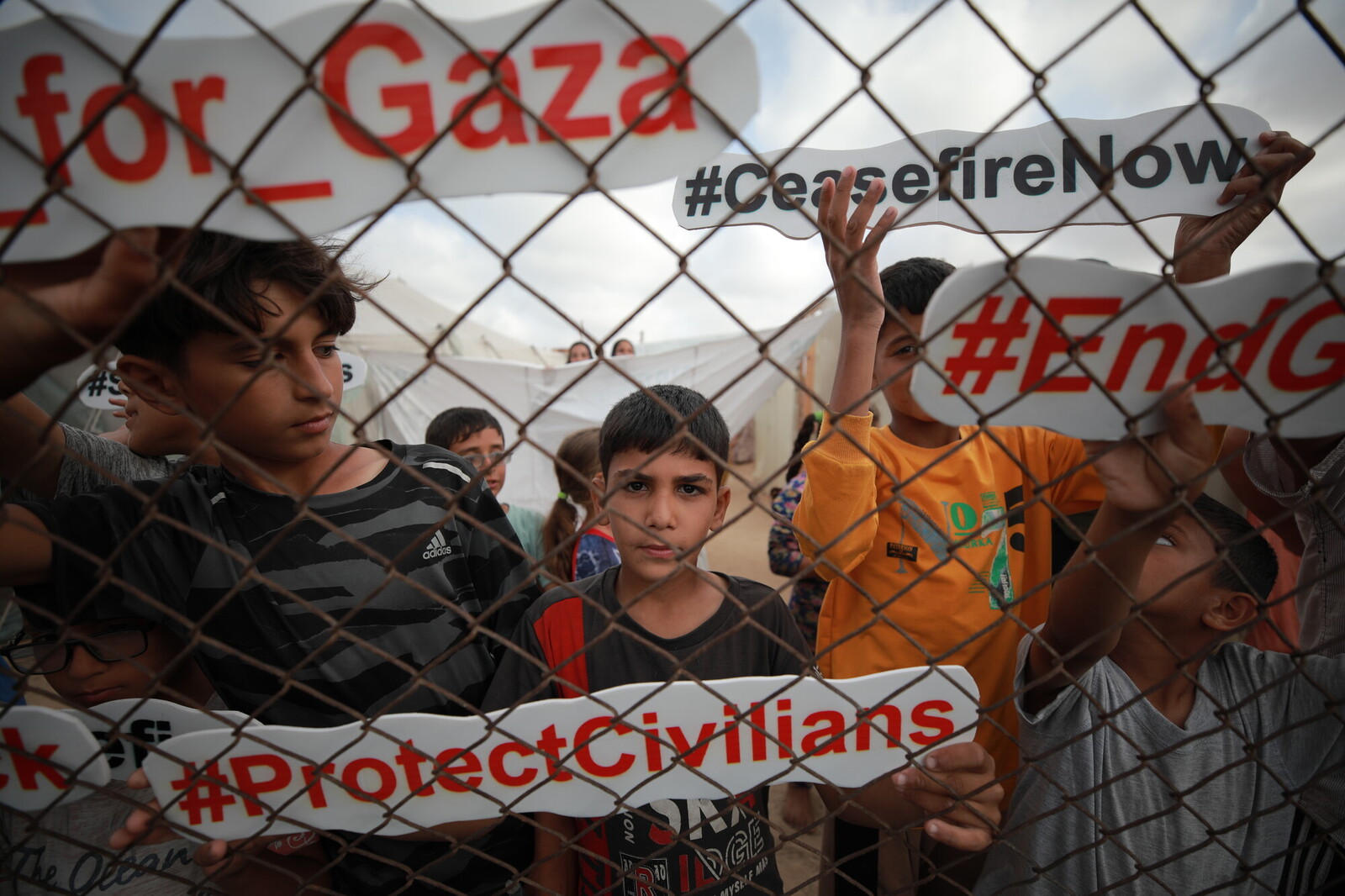
Motasem Murtaja
AFSC is publishing dozens of personal testimonies from people who have been repeatedly displaced in Gaza since Oct. 7, 2023. Our “Displaced in Gaza” series includes accounts from children, some as young as 12 years old.
Read their stories to learn more about what they’ve been through, the challenges they face, and the future they hope for.
Sa’id Khamees Al-Halabi, 12
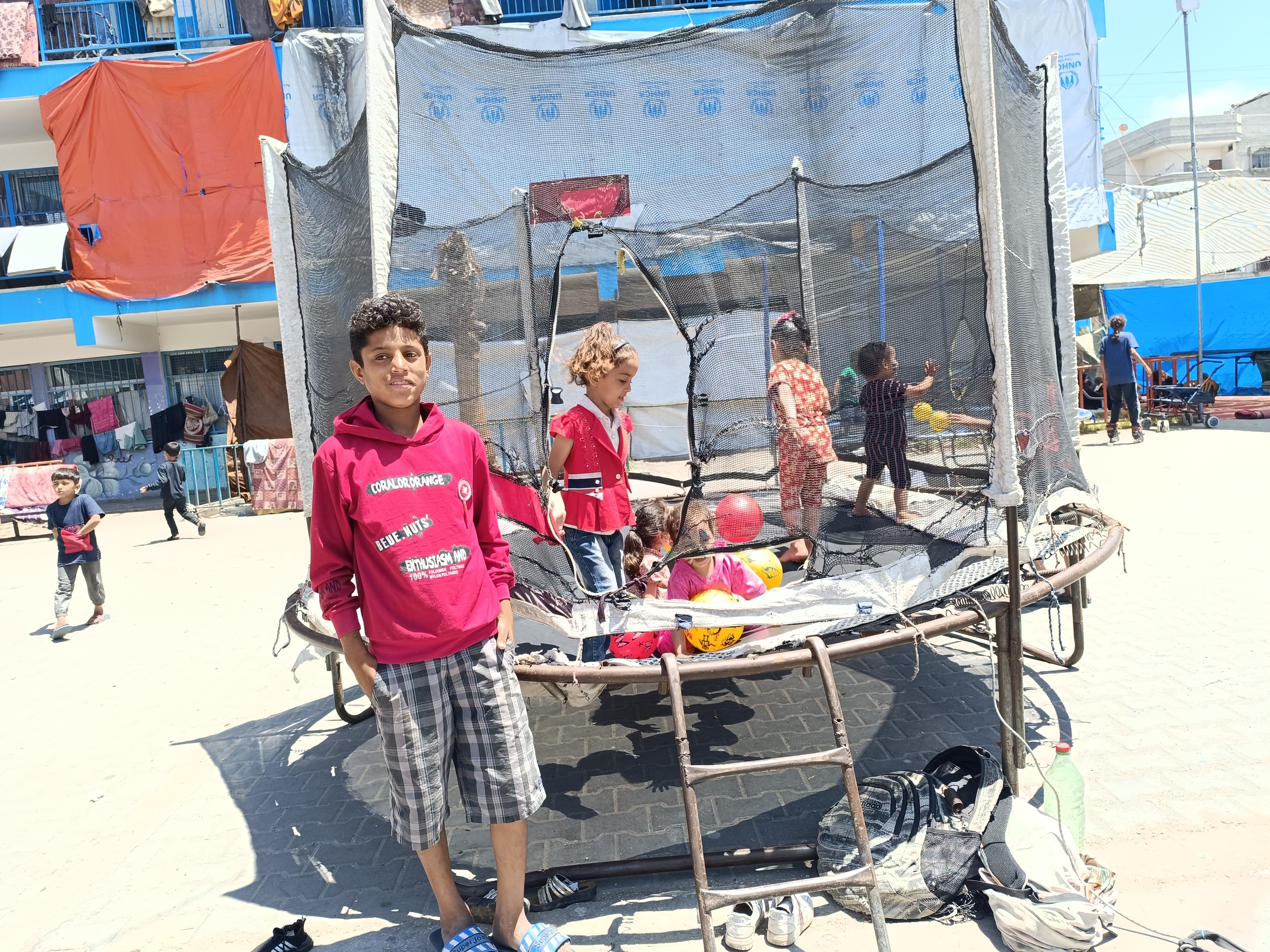
“Every day, I leave my home in the early morning to work. I head to a school belonging to UNRWA in the Nuseirat refugee camp, which shelters thousands of displaced people. I continue working inside the school until the evening hours. I earn some money, never more than 20 Israeli shekels [$5.24 USD] per day. I give the money to my father, who lost his job during the war, to help my family with household expenses and to provide some food for my 12 siblings...
My father dreams of rebuilding our house and maintaining a beautiful life for us, but my father is now unemployed, and the occupation completely destroyed his workplace. The responsibility now falls on me and my siblings to help our family overcome this difficult situation. I hope we can build our house and that I can contribute to providing a decent life for my younger siblings.
I often think of my martyred* cousin and many of my neighbors and friends who are martyrs, and I imagine myself being targeted by the bombing soon. I could be the next martyr. I am very afraid of the sounds of shelling and gunfire, but we have become accustomed to hearing them in the eighth month of the war. I dream that the war will stop, and people will return to their homes, and we will return to our schools, complete our education, and end all this suffering imposed by the occupation on us. I dream that we will return to our lives, and that my father will be able to find suitable work, and that smiles will return to all the children of Gaza.”
Mohammed Ali Al-Bibi, 17
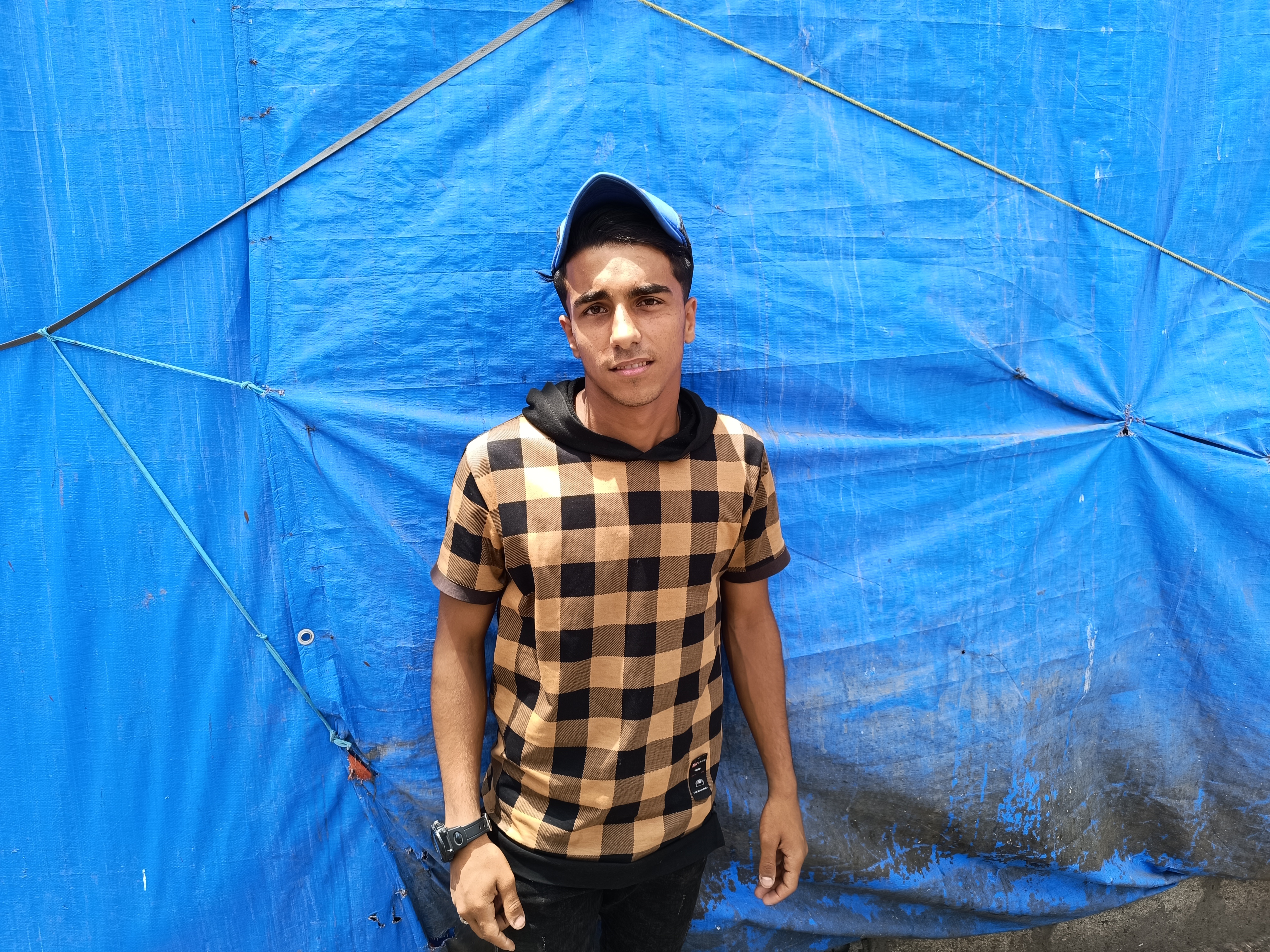
“I lost all members of my family, my home, and everything beautiful in this war. Now, I am alone, without family, friends, relatives, or a home. ...
My dream is to continue my education and return to my home in Gaza City. I hope to find the burial place of my family, where I will visit their graves as soon as I return to the Zaytoun neighborhood. I dream of finding my brother Ismail alive. Many people tell me he was martyred, but I feel he is still alive, and I hope he is. I hope to be able to rebuild our house and start a family, from which I will have children whom I will name after my father, mother, and martyred siblings.
Since the martyrdom of my family, I have been in a bad mental state, losing focus, and suffering from nervous shock. I wish everything I've been through was just a dream, and I would wake up to find my family with me. I can't believe everything that has happened, and I no longer comprehend reality. My last communication with my family was a week before their martyrdom, and I lost my phone after their death. I sleep in a tent for displaced people. The war must stop, and the occupation must be held accountable for its heinous crime against my family.”
Hala Al-Najmi, 13
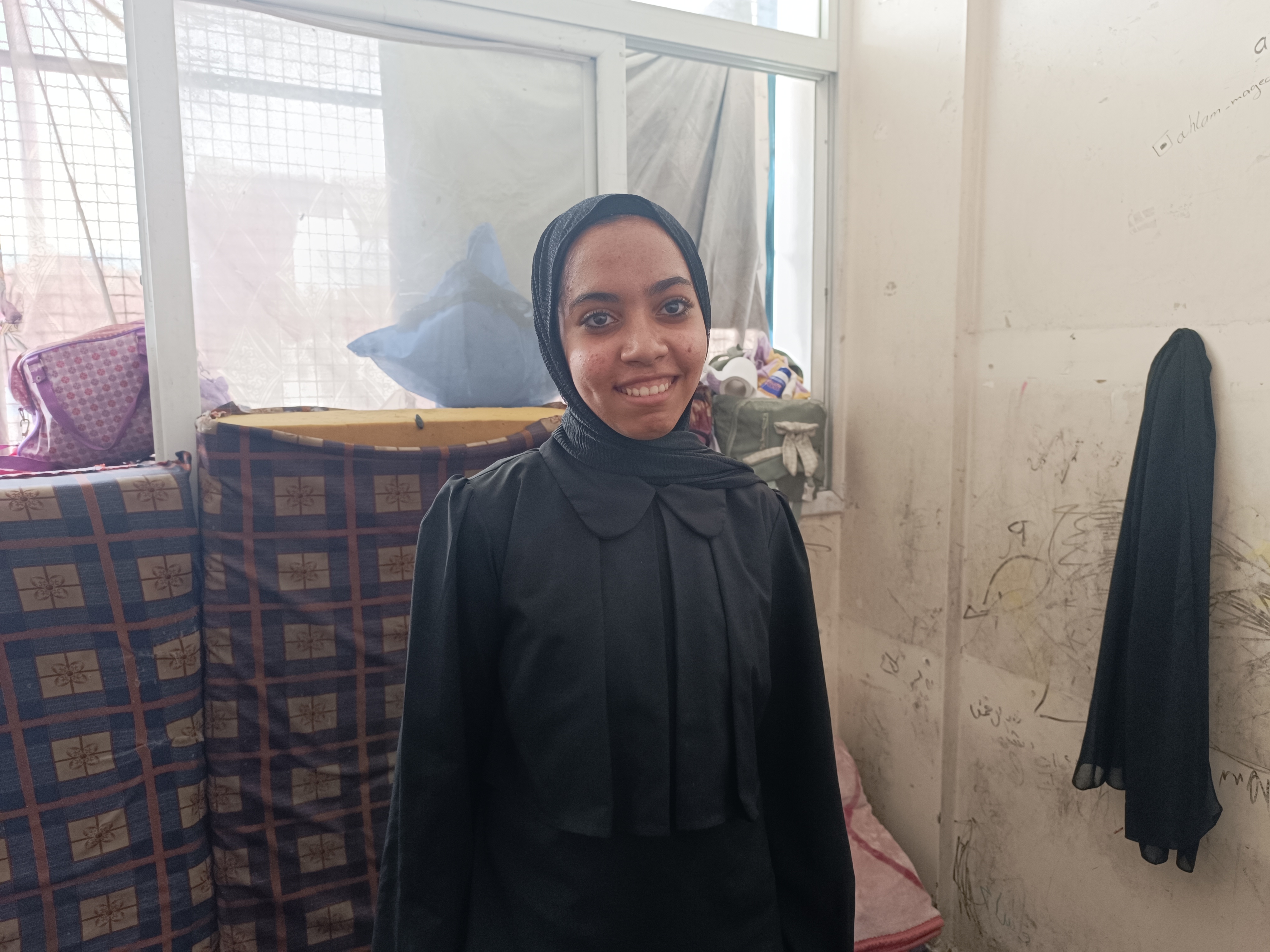
“While my family was praying, the occupation forces bombed our house. The force of the explosion threw me and my brother Karim, 20 years old, into the street behind our house. My brother Karim and I were the only ones to survive the bombing, and everyone else was martyred. ...
Now, we are living in a school shelter for displaced people run by UNRWA in Al Nuseirat camp. I have never felt safe for a single moment inside the school. The occupation forces bombed the school several times, and dozens of displaced people were martyred and injured in the school bombings.
I miss my classmates. I miss studying. I miss my life before the war. I miss coming back from school and finding my mother preparing food and eating together. But my mother was martyred. The occupation killed her and left me to continue my life without her.
The war must end immediately. The occupation must be held accountable for all the crimes it has committed against us in Gaza during the genocide war it has been waging on the Strip for the eighth consecutive month.”
Aseel Al-Hawajri, 14
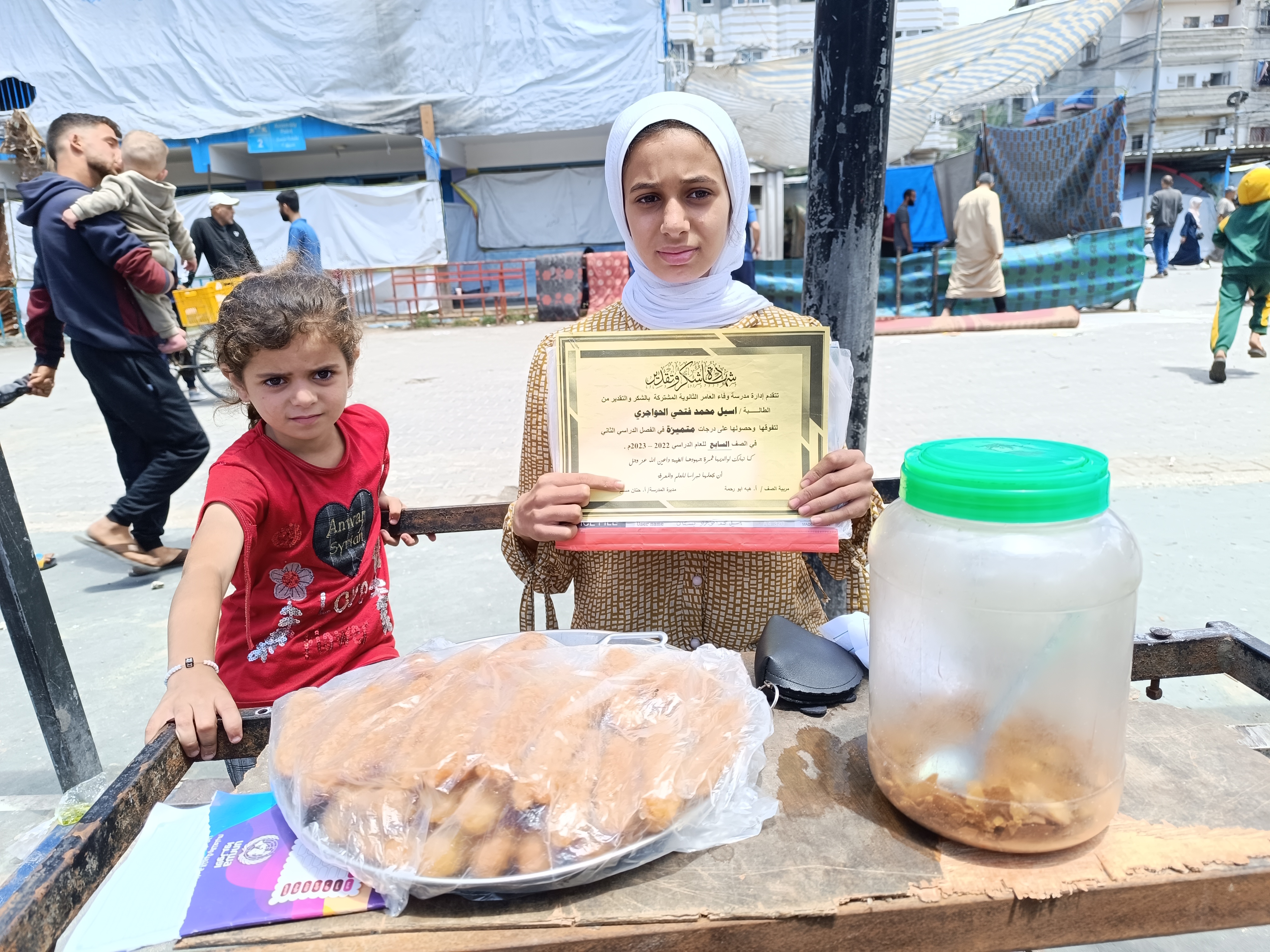
“The occupation also bombed the shelter school we lived in twice during the war, killing and injuring many displaced people. The first time, I was playing volleyball in the schoolyard and narrowly escaped the bombing. Many were injured. The second time, a few days ago, I was selling food at my small stall, and only God saved me. But even the shelter school we evacuated to is being bombed by the occupation, and we don't feel safe here either.
I am very afraid of the bombings and the sound of the rockets. When I hear the bombing, I grab the chip tray and run into my mother's classroom. We live in a classroom with 10 other families. My sister and I sleep on one mattress. We don't have food every day, and finding water is very difficult. We cook by lighting fires, and my father spends all day searching for firewood to prepare meals. I earn very little from selling, but it helps us in these difficult days. Our lives have been painful and harsh since the first day of the Israeli war on Gaza. ...
The occupation bombed my school and destroyed it. I have been living in a shelter since the beginning of the war. Today, everyone sees me as a chip and homemade sweets seller at the shelter center. People do not know that I am one of the highest-achieving students in my studies and that I have big ambitions, which I will achieve soon.
Today, people see the 14-year-old girl, Aseel, as a chip seller in the shelter center, but tomorrow they will see Dr. Aseel, who refused to surrender, challenged all obstacles, continued studying, worked hard, and achieved her dream. Today we are displaced, but tomorrow the war will stop, and we will return to rebuild our homes. I will continue studying until I achieve my dream.”
*Palestinians use the term “martyr” for religious and national reasons to signify that a person was killed unjustly and that they sacrificed their life for their country.
About Displaced in Gaza
“Displaced in Gaza” is a collection of personal testimonies from Palestinians in Gaza who have been repeatedly displaced within their homeland since Oct. 7, 2023. These stories were collected in May 2024 and commissioned by the Hashim Sani Center for Palestine Studies at Universiti Malaya.
Displaced in Gaza aims to raise global awareness about the violent and forcible displacement inflicted upon Palestinians, and its impacts on every aspect of their lives. Every story is unique, yet the endurance of the Palestinian people remains a common thread, linking each story of hope and loss together.